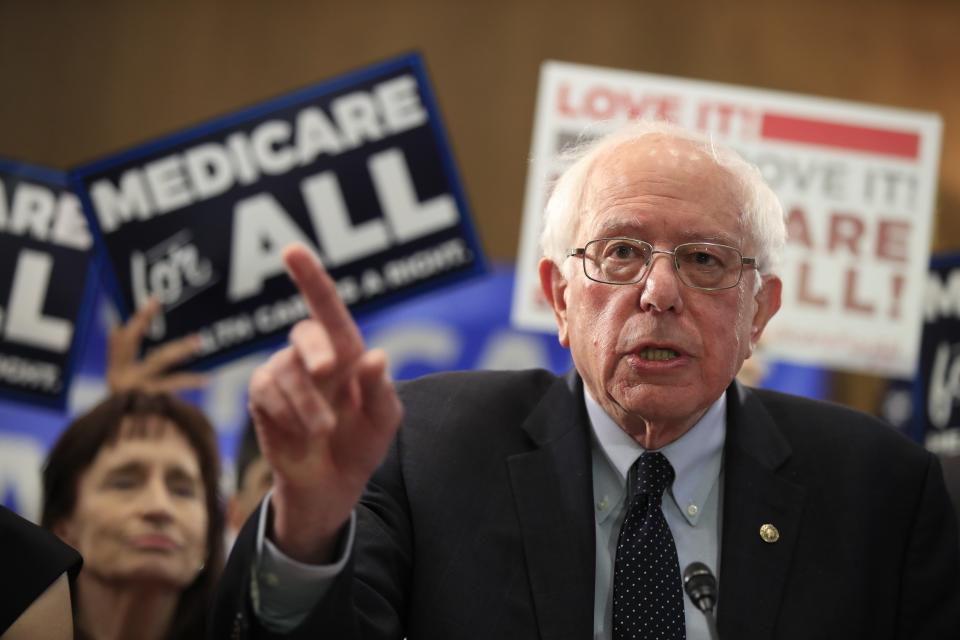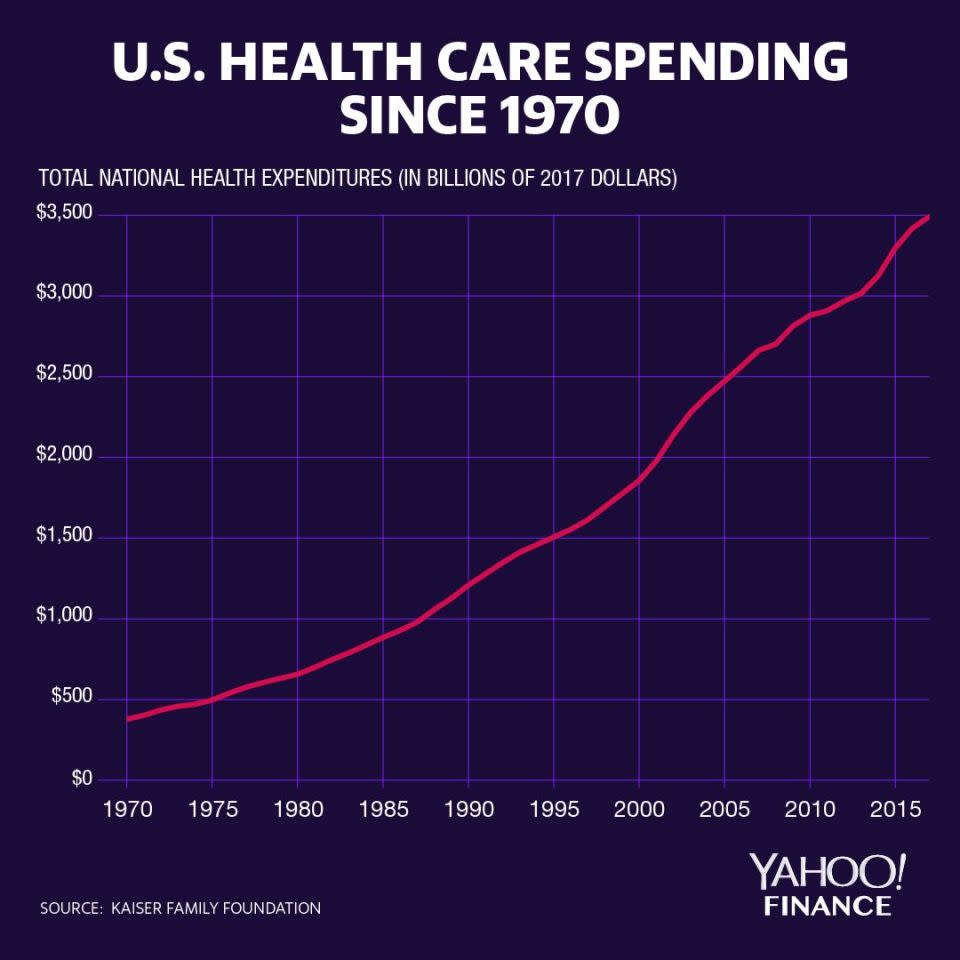Economist: Medicare costs need to be brought 'under control' before expansion
Health care costs are a hot button issue as the 2020 presidential race takes shape — especially as several major Democratic candidates offer competing visions of low-cost, universal health care.
Some candidates believe in Medicare for All — with Democratic contender and South Bend Mayor Pete Buttigieg proposing “Medicare for All Who Want It.”
Yet many others aren’t convinced universal health care is the solution for a system already saddled by spiraling costs. According to Marc Goldwein, senior vice president at the Committee for a Responsible Budget, Medicare’s price tag needs to be addressed before anything else.
“Medicare is our second-largest federal government program, and it’s the quickest-growing because of rising health care costs,” Goldwein said on Yahoo Finance’s YFi PM.
“So, even on our current path, we need to get it under control,” he said. “Certainly, if we’re talking about expanding [Medicare], like things like Medicare for all or Medicare for some, we need to make sure that on a per-person basis, we’re spending a lot less than where we’re headed to,” Goldwein added.

Unsustainable cost
In 2017, U.S. health care spending grew 3.9%, reaching $3.5 trillion or $10,739 per person, according to the Centers for Medicaid and Medicare Services (CMS). That accounts for nearly 18% of the nation’s economic growth.
Fed Chair Jerome Powell has also spoken about the issue of soaring health care costs. While testifying in front of the Senate Banking Committee in February 2019, he warned that “the U.S. federal government is on an unsustainable fiscal path. … The thing that drives our single unsustainability is health care spending.”

Medicare accounted for 14% of total federal spending in 2018, at $582 billion. And according to the Peter G. Peterson Foundation, Medicare spending is projected to nearly double from 2.9% of GDP in 2018 to 5.9% in 2048.
“I think the broader point here is what we’re seeing is there’s actually much more interest in getting Medicare costs and health care costs under control for everyone, than into spending a bunch more money just to expand it,” Goldwein said.
Adriana is an associate editor for Yahoo Finance. Follow her on Twitter @adrianambells.
READ MORE:
GoFundMe CEO: The U.S. health care system 'is really broken'
America's 'inefficient' health care system is driving our fiscal instability: Powell
'Everyone’s health insurance is more expensive' as more Americans manage chronic diseases
Read the latest financial and business news from Yahoo Finance
Follow Yahoo Finance on Twitter, Facebook, Instagram, Flipboard, SmartNews, LinkedIn, YouTube, and reddit.


